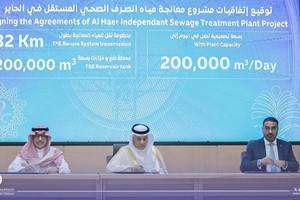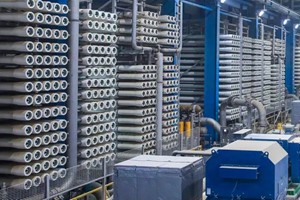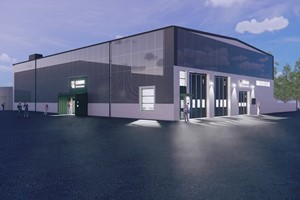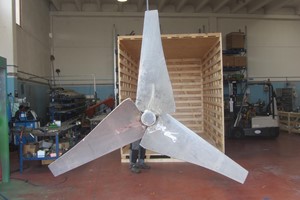The Saudi Water Partnership Company (SWPC) has finalized vital agreements with private sector entities for the development of the Al Haer Independent Sewage Treatment Plant Project in Riyadh. This initiative, which aligns with the objectives of Saudi Arabia's Vision 2030, represents an extension of Public-Private Partnership (PPP) agreements within the water, environmental, and agricultural sectors.
Upon completion, the Al Haer facility will have a treatment capacity of 200,000 cubic meters per day. In line with SWPC's mission to optimize the use of treated sewage effluent (TSE), the project includes a comprehensive TSE re-use system, consisting of 32 kilometers of transmission pipelines with a capacity of 400,000 cubic meters. Additionally, the project will feature a pumping station and TSE reservoir tanks with a combined storage capacity of 200,000 cubic meters.
Minister of Environment, Water, and Agriculture, AlFadley, remarked, “The signing of these agreements helps in implementing the decisions of the Council of Ministers and achieving the goals and plans of the Ministry to showcase water production and wastewater treatment projects in the various regions of the Kingdom in front of investors.” He further stated, "In addition, it is an extension of the success of previous projects with the participation of the private sector in developing this vital sector and helps boost its contribution to the kingdom’s development. Whereas the allocation of these projects under the Environment, Water, and Agriculture structure accomplishes the goals of the kingdom’s 2030 vision."
Engineer Khalid bin Zuwaid Al Quraishi, CEO of Saudi Water Partnership Company, highlighted that the Al Haer project is part of the continued collaboration with the private sector, following the Build, Own, Operate, and Transfer (BOOT) model for wastewater treatment. The project's concession will span 25 years, aiming to reduce operational costs and enhance the local content in both business and human resources.
The commercial operations of the facility are expected to commence in the fourth quarter of 2026.
By Olivia Tempest












